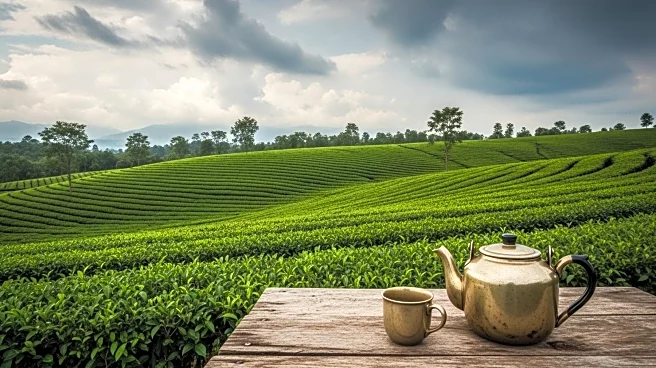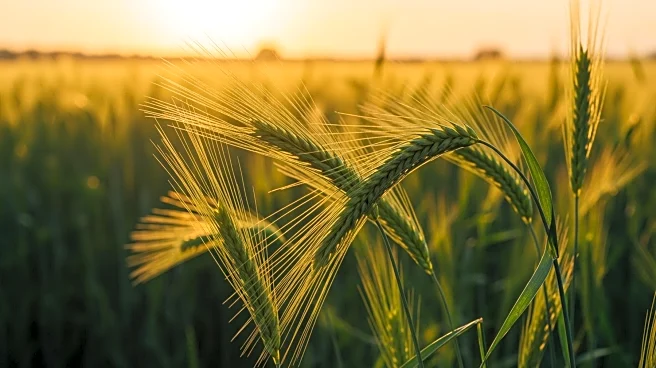What's Happening?
The tea industry in the northern plains of Bangladesh is experiencing a significant decline in production and cultivation area. Reports indicate that farmers in regions such as Panchagarh are uprooting tea bushes due to financial losses, impacting national tea output. The Bangladesh Tea Board data shows a drop in production by approximately 35.57 lakh kilograms in 2024 compared to the previous year. The total production for the five districts stood at 14.39 million kilograms, a decrease from the previous season. Farmers are switching to vegetable farming due to low prices for green leaf and rising costs for fertilizers and pesticides.
Why It's Important?
The decline in tea production in Bangladesh's plains has broader implications for the country's economy and agricultural sector. Tea is a significant export product, and reduced production could affect Bangladesh's position in international markets. The shift from tea to vegetable farming indicates a potential change in agricultural practices, which could impact local economies and employment. The situation calls for government intervention to stabilize prices and support farmers, potentially through export policies to enhance market access.
What's Next?
Experts are urging the government to elevate tea to an export-oriented product under state patronage to prevent the industry's collapse. There is a call for government intervention to stabilize prices and support farmers, potentially through export policies to enhance market access. Without such measures, local syndicates may continue to exploit farmers, leading to further declines in production.
Beyond the Headlines
The crisis in the tea industry highlights the challenges faced by farmers due to market instability and rising costs. It underscores the need for sustainable agricultural practices and fair pricing mechanisms to ensure the viability of traditional farming sectors. The situation also reflects broader economic challenges, including the need for diversification and innovation in agricultural practices.









